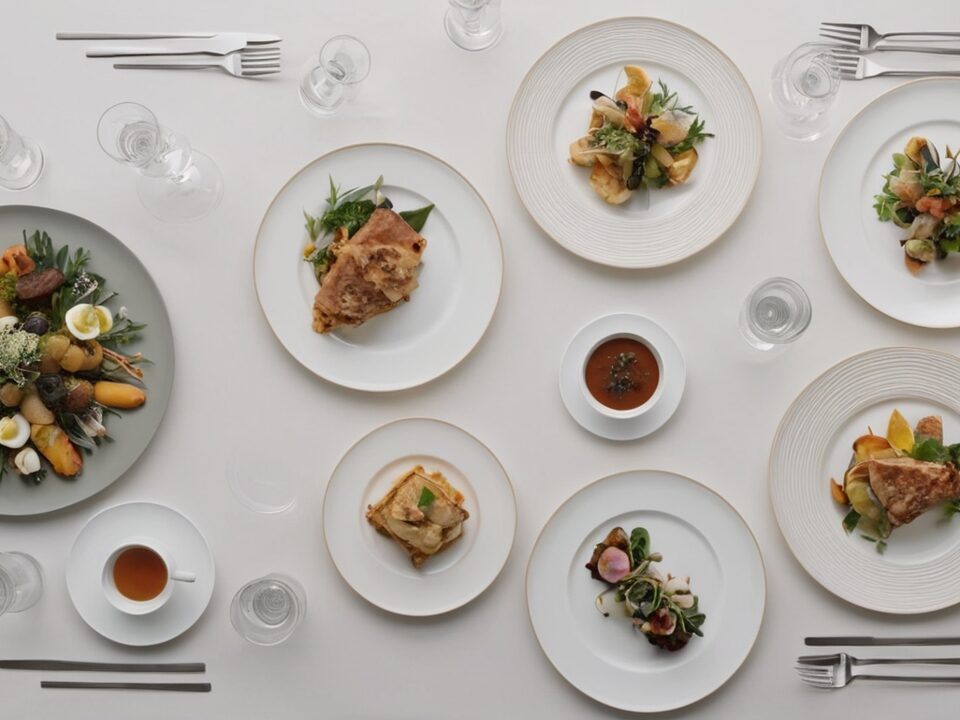
What to Know Before Renting a Food Truck for Corporate Events2025
October 25, 2025
Mobile Catering Made Easy: A Step-by-Step Guide for Event Planners2025
October 25, 2025From Street Food to Fine Dining: The Evolution of Food Truck Culture
What began as humble carts on urban sidewalks has transformed into a global culinary movement. food truck rental have evolved from being simple street food vendors to high-end mobile kitchens that rival traditional restaurants. This evolution reflects a fascinating intersection of culture, innovation, and gastronomy. But how did this shift happen, and what does it mean for modern food culture? Read on to discover the journey from street food to fine dining, filled with real-world insights and practical examples.
The Humble Beginnings of Food Trucks
Street food has existed for centuries, but the modern food truck rental movement began in the late 20th century. Early trucks served basic, affordable meals to working-class neighborhoods, with minimal decor and no frills. The focus was efficiency, convenience, and accessibility. These mobile kitchens offered burgers, hot dogs, and other quick bites, meeting the immediate needs of urban dwellers and busy commuters.
While early food truck rental were primarily functional, they established a foundation of culinary experimentation. By navigating streets and neighborhoods, these vendors could test new recipes, interact directly with customers, and adjust menus on the fly—a flexibility that traditional restaurants could seldom match.
The Rise of Gourmet and Fusion Food Trucks
In the early 2000s, the concept of gourmet food truck rental began to take shape. Chefs and entrepreneurs saw the potential to offer high-quality, innovative dishes without the overhead of a brick-and-mortar restaurant. Fusion cuisine became a hallmark, combining flavors from different cultures into accessible street-style formats. Korean tacos, gourmet sliders, and artisanal desserts became popular staples in metropolitan areas.
This period also saw the emergence of social media as a marketing tool. Food trucks could announce locations, special menus, and events in real time, building loyal followings and cultivating communities around their culinary offerings. Many trucks gained celebrity attention and press coverage, helping elevate the food truck from a casual meal option to a cultural phenomenon.
From Trucks to Mobile Fine Dining
Today, some food trucks have transcended casual street food, offering fine dining experiences on wheels. These mobile kitchens feature sophisticated menus, premium ingredients, and curated presentation. Michelin-level chefs have experimented with this format, proving that mobile dining can be both gourmet and experiential.
Mobile fine dining also allows for personalized experiences. Private events, weddings, and corporate gatherings have embraced the concept, turning the food truck into a versatile platform for exclusive culinary experiences. Diners can enjoy chef-led tasting menus in outdoor or unconventional spaces, blending innovation with social engagement.
Real-World Example: Los Angeles Gourmet Truck Scene
Los Angeles has become a global epicenter for gourmet food trucks. Trucks like Kogi BBQ revolutionized street cuisine by fusing Korean flavors with traditional Mexican tacos. This approach garnered massive social media attention and spawned collaborations with major restaurants. Kogi’s success demonstrated that food trucks could influence culinary trends, attract celebrity clientele, and redefine the perception of street food.
Real-World Example: Toronto’s Mobile Culinary Movement
In Toronto, the mobile dining scene has blossomed into a sophisticated ecosystem. Food trucks like Naan & Kabob and The Rolling Stove have introduced high-quality, locally-sourced menus. Pop-up events, wedding catering, and urban festivals showcase the versatility of these trucks. Guests not only enjoy quality meals but participate in interactive experiences, bridging the gap between casual street food and fine dining.
The Impact on Food Culture and Urban Life
The evolution of food trucks has reshaped urban culinary culture. Cities are no longer bound by traditional restaurant infrastructures. Food trucks bring diversity, creativity, and convenience to public spaces. They serve as incubators for culinary talent, allowing chefs to experiment with new concepts before scaling to permanent locations. The result is a dynamic urban food scene, vibrant with innovation and accessibility.
Moreover, food trucks foster community engagement. Weekly markets, festival appearances, and pop-up events encourage social interaction, cultural exchange, and shared experiences. The mobile nature of these kitchens transforms public spaces into lively, inclusive culinary arenas.
Challenges and Considerations
Despite their popularity, food trucks face challenges such as regulatory compliance, licensing, and competition for prime urban spots. Additionally, maintaining quality, safety, and operational efficiency is crucial as trucks scale or participate in high-profile events. Balancing creativity with consistency remains a core challenge for operators looking to merge street food heritage with fine dining expectations.
Another consideration is sustainability. Food trucks must manage waste, sourcing, and energy usage efficiently. Many modern operators prioritize eco-friendly packaging, locally-sourced ingredients, and energy-efficient appliances, reflecting broader trends in sustainable gastronomy.
The Technology Revolution in Food Truck Culture
Technology has played a critical role in the evolution of food trucks. Mobile apps, online ordering systems, and GPS tracking allow vendors to connect with customers more efficiently than ever before. Social media marketing helps food trucks reach wider audiences and create real-time buzz around limited-time menus or pop-up events.
Some trucks are also experimenting with AI-powered kitchen management, predictive inventory systems, and cashless payment methods to streamline operations and enhance customer experience. Technology ensures that mobile kitchens remain agile, scalable, and customer-centric.
The Future of Food Truck Culture
The trajectory suggests that food trucks will continue to innovate, merging mobility with culinary artistry. Technology will play a significant role, from mobile apps that track trucks’ locations to AI-assisted menu planning. Virtual dining experiences, hybrid food festivals, and cross-city collaborations are likely to expand the influence of food trucks even further.
As dining expectations evolve, food trucks may increasingly serve as platforms for experiential, high-end cuisine. Urban planners, chefs, and event coordinators can harness this trend to create flexible, immersive culinary experiences that merge taste, entertainment, and cultural storytelling.
Conclusion
From humble street corners to fine dining pop-ups, food trucks have undergone a remarkable transformation. They reflect innovation, adaptability, and a democratization of culinary experiences. Whether serving quick bites or multi-course gourmet menus, food trucks have proven their enduring impact on urban food culture and the dining experience. Embrace this evolution, explore local mobile dining, and witness firsthand how food trucks continue to redefine gastronomy.
FAQ
- Q: How have food trucks evolved from street vendors to gourmet kitchens?
- Initially serving affordable street meals, food trucks have embraced gourmet ingredients, fusion cuisine, and fine dining experiences, often featuring chef-curated menus and high-quality presentation, transforming urban culinary culture.
- Q: Can food trucks provide fine dining experiences at private events?
- Yes. Many food trucks specialize in weddings, corporate events, and pop-up dinners, offering curated tasting menus and interactive culinary experiences in outdoor or unconventional venues.
- Q: What impact have food trucks had on urban food culture?
- Food trucks have increased culinary diversity, fostered community engagement, and provided a platform for chefs to experiment, making cities more dynamic, inclusive, and innovative in their dining offerings.



